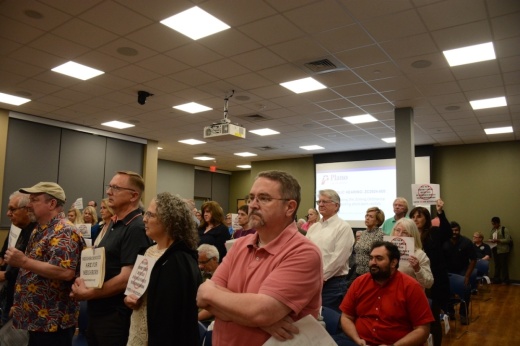Plano City Council adopted regulations that would prohibit any new short-term rental operations in neighborhoods, eliminate distinctions between live-in and off-site management outside of heritage districts and require registration with the city during its April 22 meeting. Council members have been working to pass regulations ahead of a May 15 expiration of a one-year interim ban adopted in 2023.
What you need to know
As part of the April 22 meeting, council members were considering two items: zoning regulations that would outline operational requirements for a short-term rental within the city and a registration program for operators. Zoning regulations prohibit new short-term rental properties in neighborhoods with new uses only allowed in the heritage district, all commercial zoning districts, areas where hotels are allowed and some multifamily zoning districts, Director of Planning Christina Day said.
Live-in management within the heritage district would operate similarly to existing regulations on bed and breakfast inns within the city, Day added.
Short-term rentals operating prior to the adoption of the interim ban will be allowed to continue operating as legacy uses provided they register with the city. An annual registration fee of $300 would be required with $100 discounts available for the respective completion of a training program and if no nuisance or serious incidents occur at the short-term rental, Director of Neighborhood Services Curtis Howard.
A total of 40 speakers signed up to speak during the meeting about the zoning regulations with three speakers speaking in opposition to the adopted option at the meeting. A total of 47 speakers signed up to comment on the registration program.
The details
Individuals would also be required to register a rental with the city annually and meet several requirements outlined in city documents, including:
- A minimum of $1 million in liability insurance coverage
- Have a designated contact person who can respond to or resolve an incident, or arrive on site if necessary, within an hour or reasonable timeframe
- A list of all platforms where a short-term rental property is listed and photos of the unit
- Noise level and video monitoring on the property
- A posted floor plan, valid registration certificate, and applicable federal, local and state regulations within the short-term rental unit
- Contact information, including legal name, mailing address, email address and telephone number, for any owners and operators of the short-term rental
What’s next?
Day said the zoning regulations would take effect upon publication of the new ordinance, which should take place in about one week.
City staff plan to mail out notices to existing short-term rental operators informing them of the requirement to register by Aug. 1, Howard said.





